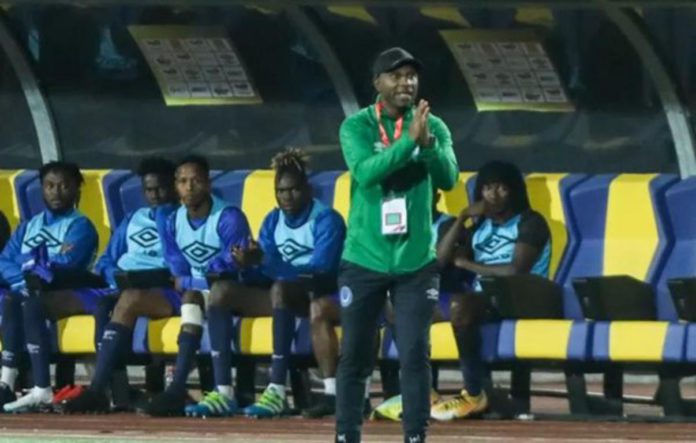Florent Ibenge, coach of leading Sudanese football club Al-Hilal SC, went to bed on Friday a fortnight ago thinking about his team’s next match in the battle for the league title, but woke up to find himself in a war zone.
“We could hear gunfire… I was in disbelief,” he told the BBC.
His home was right in the middle of where the conflict began in the Sudanese capital, Khartoum – he lived in between the presidential palace and the airport that had earlier been taken by the Rapid Support Forces (RSF) paramilitary group.
He was stuck and soon realised he was not able to reach his 14-year-old daughter, who had left the house early on Saturday morning to go swimming with her school club.
“She is training in a hotel that is one minute away from the airport. And from my house, I could see the air force shooting towards the airport. It was horrible because you can’t move, you can’t go and get your daughter.”
They would not be reunited for a whole week, on the tarmac of the military airport, as they awaited evacuation.
Once he realised she was relatively safe in the hotel and had food, Ibenge started to turn his fatherly attention to his team and his staff.
But his calm and composed nature was truly put to the test.
“I first managed to get my assistant goalkeeping coach out of the area.
“Then a Burundian couple got in touch with my wife, asking if they could come over because fighters had entered their home.
“They had forced their way into his house and put a gun to his head while he was with his wife and his four-month-old baby.
“It was horrible. They stayed there for three days before they got an opportunity to escape.
“He finally managed to call my wife and we told them to come straight away. When he arrived, he didn’t even sit down, he slumped down there for hours. It was really horrible.

